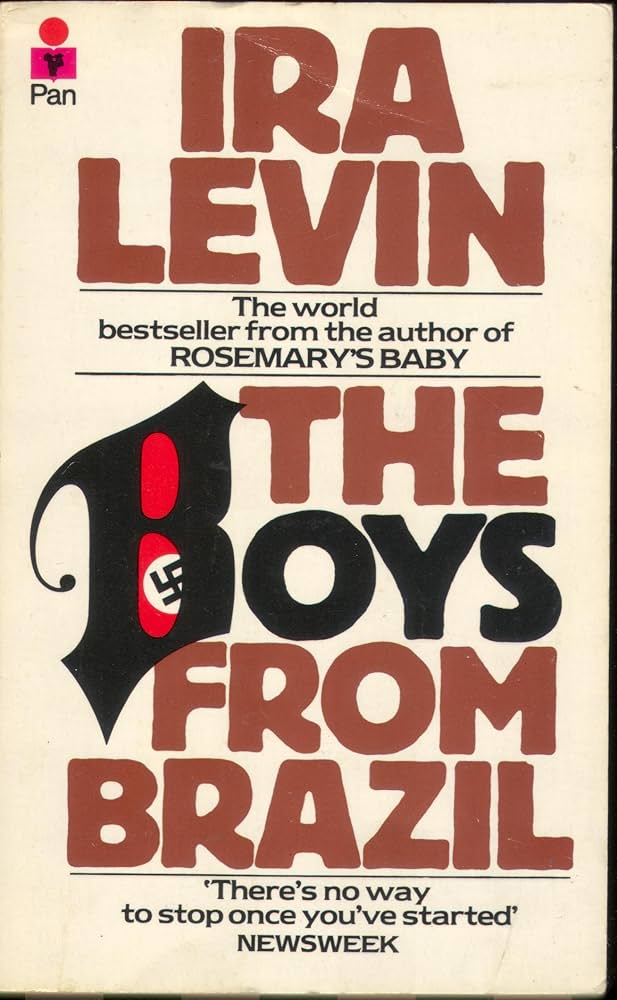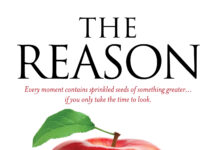In the vast landscape of thriller literature, few novels manage to intertwine chilling suspense with profound ethical questions as deftly as Ira Levin’s The Boys from Brazil. This gripping narrative, steeped in shadows both literal and metaphorical, beckons readers into a world where history’s darkest echoes reverberate through a sinister present. seeks to navigate these intertwining layers, offering a measured exploration of the novel’s gripping plot, complex characters, and the unsettling moral quandaries that lie beneath its surface. Through this lens, the review invites readers to reconsider not only the story itself but also the enduring questions about identity, legacy, and the haunting reach of past atrocities.
Unraveling the Intricacies of ira Levin’s Plot and Its Chilling Psychological Undertones

Ira Levin weaves a labyrinthine narrative in the Boys from Brazil that skillfully balances suspense with existential dread. At its core, the plot delves into a shadowy conspiracy involving the sinister resurrection of Hitler’s ideology through a cadre of cloned children, blurring the lines between science and morality. the tension escalates not only through the external manhunt but also intrudes deeply into the characters’ psyches, exposing vulnerabilities, paranoia, and ethical despair. Levin’s meticulous plotting is a masterclass in pacing, gradually revealing layers of betrayal, identity crisis, and the unnerving question of whether nature or nurture holds the ultimate power over humanity’s dark impulses.
Beneath the surface, the novel explores chilling psychological undertones that resonate long after the final page. The thematic elements include:
Best-Selling Books in This Category
- Identity and duplication: The unsettling idea of clones as vessels of inherited evil challenges notions of selfhood and destiny.
- Manipulation and Control: The puppeteers behind the scenes orchestrate horrors while hiding in plain sight, raising fears about unseen influences in society.
- Morality vs. Science: Ethical boundaries are tested as scientific advancement is harnessed for nefarious ends.
these layers create a symphony of tension where psychological horror is not derived from gore or shock, but from an intellectual and emotional unease that questions the foundations of humanity itself.
| Element | Impact | Example |
|---|---|---|
| Cloning | Raises ethical dilemmas about identity | The creation of Hitler’s genetic copies |
| Conspiracy | Builds suspense and paranoia | The secret network targeting clones |
| Psychological Tension | Deepens emotional engagement | Characters’ inner conflicts and fears |
Exploring the Nuanced Character development That Brings Tension and Depth to the Narrative

At the heart of Ira levin’s narrative lies an intricate mosaic of personalities, each layered with conflicting motives and subtle vulnerabilities. The characters are not mere vessels for advancing the plot; rather, they act as living entities whose internal struggles ignite the story’s tension. Levin masterfully crafts these individuals with such depth that their decisions balance on a razor’s edge, reflecting the ambiguous morality that permeates the novel. This complexity invites readers to engage in an ongoing dance of empathy and suspicion, where the line between protector and predator blurs with unnerving precision.
The tension is amplified through distinctive character dynamics that carefully unravel throughout the book, creating a sense of impending doom without sacrificing nuance. Key relationships can be highlighted in the following table:
| Character | Role | Driving Conflict |
|---|---|---|
| Dr. Josef Mengele | Antagonist / Scientist | clash between obsessive ambition and human ethics |
| E. M. Fields | Investigator | Quest for truth vs. moral ambiguity |
| Young Clones | innocents with a dark origin | Inherited legacy vs. personal identity |
Through these layered conflicts,Levin employs character development not just to propel the plot,but to probe deeper philosophical questions about nature,nurture,and the shadows that dwell within human consciousness. The reader is left oscillating between sympathy and unease, as each character’s choices reveal discordant truths about power and vulnerability.
How Levin Balances Historical References with Suspenseful Fiction to Engage Readers Deeply

At the heart of Levin’s narrative mastery lies a seamless weaving of documented history and imaginative tension, wich together create a multifaceted reading experience. He anchors the story in the chilling aftermath of World War II, tapping into actual historical figures and events, yet propels the plot forward with a fictional conspiracy that teeters on the edge of plausibility. This clever interplay hints at uncomfortable realities without succumbing to mere sensationalism. Readers are invited to traverse a labyrinth where factual gravity elevates the stakes, while suspenseful fiction keeps the pages turning.
Levin’s technique incorporates a intentional layering of elements that heighten engagement, including:
- Authentic characterization: Protagonists and antagonists mirror real-world archetypes, grounding fantastical plotlines in human complexity.
- Meticulous detail: Scenes are laced with concrete historical references that add credibility and texture.
- Gradual revelation: Data unfolds incrementally, maintaining a consistent sense of intrigue and urgency.
To visualize the balance between history and fiction, consider this concise breakdown:
| Element | Historical Component | Fictional Twist |
|---|---|---|
| Setting | Post-WWII Europe | Secret cloning experiments |
| Characters | Real-life Nazis | Invented conspirators |
| Plot | Investigations of war crimes | Race to stop genetic manipulation |
This dynamic mesh of fact and fiction not only immerses readers but also provokes reflection on ethical dilemmas and the lasting shadows of history. levin’s narrative alchemy resonates beyond the page, challenging perceptions through a suspenseful yet intellectually stimulating framework.
The Role of Ethical Dilemmas and Moral Questions in Shaping the Story’s Dark Atmosphere
Embedded deep within the fabric of The Boys from brazil are ethical dilemmas that twist the narrative into something profoundly unsettling. Levin masterfully drags readers into a mire where every decision seems shadowed by moral ambiguity. The characters are not merely players in a thriller but reflections of humanity wrestling with the gravest questions: to what extent does the past dictate our future, and what justifies crossing moral boundaries in the name of science or ideology? These questions do not simply add tension-they suffuse the story with an oppressive weight, challenging readers to grapple with the uncomfortable truths about nature, nurture, and the devastating legacies of history.
What amplifies this dark atmosphere is the deliberate ambiguity surrounding the choices characters must make, which Levin presents without easy answers. Consider these moral quandaries that punctuate the narrative:
- Predestination vs. free will: Are the cloned boys doomed to repeat history, or can fate be rewritten?
- The ethics of scientific experimentation: At what cost should humanity pursue radical advancements?
- justice versus revenge: When is retaliation a necessary evil, and when does it corrupt the seeker?
These themes intertwine, creating a tapestry of shadows where trust erodes and paranoia thrives. the unsettling moral questions Levin poses act as an emotional undercurrent that immerses readers in a world where every choice reverberates with result, heightening the novel’s pervasive sense of dread.
| Ethical Dilemma | Narrative Impact | Dark Atmosphere |
|---|---|---|
| Cloning and Identity | Questions human uniqueness | Creates existential dread |
| Moral Duty of Scientists | Challenges ethical limits | Breeds mistrust and fear |
| Survival vs. humanity | Blurs lines between hero and villain | Envelops story in moral grayness |
An Analysis of Levin’s Writing Style and its effectiveness in Building Unrelenting Suspense
Levin masterfully employs a crisp, economical prose that drives the narrative forward with relentless momentum. His sentences, ofen terse and deliberate, mirror the cold, clinical nature of the secrets unraveling within the story. this economy of language doesn’t just maintain pace; it immerses the reader in an atmosphere thick with ominous undertones. By strategically revealing information in measured doses, Levin keeps readers perpetually perched on the edge of uncertainty, evoking a tension that feels immediate and unyielding.
Several stylistic devices contribute to this effect, including:
- Cliffhanger chapter endings that compel the reader to keep turning pages.
- Interwoven multiple perspectives that provide fragmented glimpses of the overarching conspiracy, enhancing suspense through limited knowledge.
- Shifts in tone ranging from eerie calmness to sudden bursts of tension, mirroring the unpredictability of the plot.
| writing Element | Effect on suspense |
|---|---|
| Concise Sentences | Builds urgency and focus |
| Multiple POVs | Creates dramatic irony |
| Careful Pacing | Maintains tension rhythm |
examining the Symbolism and Metaphors That Enrich the Themes Within The Boys from Brazil
Levin masterfully intertwines symbolism to deepen the unsettling narrative of The Boys from Brazil. The recurring motif of the chess game, as an example, is no mere backdrop; it embodies the strategic manipulation of human lives, mirroring the dystopian orchestration behind the plot’s cloning experiment. Each move on the board is a silent metaphor for calculated, cold decisions that relentlessly push the story forward, illustrating how individuals become pawns in a larger, sinister design.The shadows that permeate the novel not only cloak the characters physically but also symbolize the unseen forces of history and ideology that shape destinies without mercy or conscience.
Similarly, Levin’s use of the natural world contrasts its innocence against the engineered horrors playing out in the human realm. the boys themselves are paradoxical symbols-simultaneously representing hope through their youth and doom as carriers of a dark legacy. Below is a brief table capturing key metaphors and their thematic significance:
| Symbol/metaphor | Meaning | Thematic Impact |
|---|---|---|
| Chess game | Manipulation and control | human lives as strategic moves in a deadly game |
| shadows | Hidden evil and unseen forces | Omnipresence of dark ideology shaping fate |
| The boys | Innocence corrupted by design | Conflict between nature and nurture, hope and horror |
- nature vs. Artificiality: The clash between genuine human elements and scientific manipulation.
- Legacy of Evil: the enduring shadow of historical atrocities and their modern echoes.
- Identity and Destiny: Exploration of how much control one truly has over their own life.
The Impact of Setting and Time Period on the Story’s Believability and Emotional weight
Ira Levin masterfully situates The Boys from Brazil in a post-World War II Europe, a time steeped in the lingering shadows of Nazism and the dawning fears of modern science misused. This specific setting elevates the story’s believability, grounding its dark experimentation and moral questions within a reality that readers can grasp with chilling clarity. The bleakness of the era-marked by secretive organizations and whispered conspiracies-amplifies the narrative tension, driving home the plausibility of sinister plots unfolding just beneath society’s fragile veneer.
The interplay between setting and timeline also intensifies the emotional weight carried by the characters,who traverse a world scarred by past atrocities while confronting an uncertain future. Levin’s attention to period detail-such as the cold war paranoia and the ethical dilemmas posed by cloning technology-creates a backdrop that is as much a character as the protagonists themselves. This is highlighted in the table below, illustrating how elements of the setting directly influence story dynamics:
| Setting Element | Story Impact | Emotional Effect |
|---|---|---|
| Post-War Europe | Seedbed for hidden Nazi resurgence | Tense paranoia and haunting memories |
| Emerging Genetic Science | Believable cloning plot device | Moral unease and existential dread |
| Cold War Climate | Heightened suspicion and espionage | Sense of urgency and danger |
- Historical authenticity roots the narrative in a believable reality.
- Technological context makes the science-fiction elements credible.
- political tension adds layers of complexity and emotional stakes.
Why This Novel Remains Relevant in Contemporary Discussions About Science, Ethics, and Humanity
The novel’s exploration of the intersection between cutting-edge scientific experimentation and the depths of human morality resonates profoundly in today’s world, where advances in genetics and cloning are no longer confined to fiction. Levin’s story probes the unsettling consequences of playing god, questioning the *limits* of scientific pursuit when ethical boundaries blur. This tension is reflected in ongoing debates about gene editing technologies like CRISPR, where the promise of curing diseases exists alongside fears of unforeseen societal and ethical ramifications. By weaving a narrative that confronts the shadowy underside of scientific ambition, the book invites readers to ponder not just what science can do, but what it *should* do, emphasizing responsibility and vigilance in an era of rapid technological change.
Beyond its scientific themes, the novel serves as a mirror to humanity’s complex relationship with power, identity, and morality. It challenges us to consider the consequences of manipulating human nature, not only biologically but psychologically and socially. Within this framework emerge questions that remain eerily relevant:
- What defines individuality in a world tempted by replication?
- Can ethical principles survive when applied to monstrous experiments?
- How do personal and collective histories shape our notions of humanity?
| Theme | Modern Relevance | Thought-Provoking Question |
|---|---|---|
| Scientific Ambition | Gene editing and cloning ethics | how far should science intervene in nature? |
| Moral Responsibility | Accountability in technological advances | Who bears the consequences of scientific misuse? |
| Human Identity | Individuality vs. replication | What truly makes us human? |
Comparing The Boys from Brazil to Other Thriller Classics to Understand its Lasting Influence
While many thriller classics navigate the terrain of conspiracy, espionage, or psychological suspense, The Boys from Brazil distinguishes itself through a chilling blend of historical horror and speculative fiction. Unlike the pulsating cat-and-mouse dynamics seen in works like The Silence of the Lambs, Ira Levin’s novel ventures into the dark corridors of genetics and morality, presenting a narrative that is as intellectually provocative as it is gripping.Its multifaceted antagonist, coupled with the haunting implications of cloning Adolf Hitler, situates the novel in a unique niche where thriller meets ethical dilemma, a configuration rarely explored with such bleak realism in contemporaneous thrillers.
To better appreciate this uniqueness, consider the following comparison:
| Aspect | The Boys from Brazil | Typical Thriller Classics |
|---|---|---|
| Core Theme | Ethical implications of cloning and the resurrection of evil | Crime, espionage, psychological tension |
| Antagonist | Complex – blending historical figure and fictional menace | Often human villains or shadowy organizations |
| Mood & Tone | Dark, cerebral, unsettling | Suspenseful, fast-paced, adrenaline-driven |
| Narrative Style | Layered with moral questions and scientific intrigue | Often straightforward with a focus on action |
This comparison underscores why The Boys from Brazil remains influential; it dares to provoke thought beyond mere entertainment, leaving readers to wrestle with uncomfortable possibilities long after the final page. Its legacy is evident in later thrillers that attempt to intertwine social commentary with suspense, signaling a shift from simple escapism to a more reflective genre experience.
Recommendations for Readers Who Appreciate Psychological Thrillers With Intellectual Depth
For readers drawn to psychological thrillers that challenge the mind as much as they ignite suspense, The Boys from Brazil offers a compelling blend of cerebral intrigue and nerve-wracking tension. Levin’s narrative deftly weaves moral complexities and cryptic motives, inviting readers to engage in deep reflection on themes of identity, destiny, and the shades of human nature. Those who appreciate stories that linger beyond the final page will find themselves questioning not only the characters’ decisions but the broader ethical dilemmas that unfold within the chilling premise.
exploring psychological thrillers with intellectual gravitas often leads readers to works that balance gripping plots with thoughtful exploration. To enhance your literary journey after diving into Ira Levin’s masterpiece, consider exploring titles that share these qualities:
- Complex Protagonists: Characters whose internal conflicts mirror the chaotic world around them.
- Thematic Depth: Stories that probe into philosophical or existential questions.
- Atmospheric Storytelling: Narratives rich with mood and tension that sharpen the psychological impact.
- Unexpected Twists: Plots that challenge assumptions and keep the intellect engaged.
| Recommended Titles | Why They Resonate |
|---|---|
| The Secret History - Donna Tartt | Philosophical tension wrapped in dark academia. |
| Gone Girl – Gillian Flynn | Unreliable narrators and intricate psychological twists. |
| Shutter Island – Dennis Lehane | Mind-bending mystery with profound emotional depth. |
A Closer Look at the Pacing and narrative Structure That Keep Readers Engaged From Start to Finish
The narrative propulsion in The Boys from Brazil cleverly intertwines relentless tension with moments of measured revelation, creating a rhythm that hooks the reader without overwhelming them. Ira Levin orchestrates a balance between chilling suspense and strategic downturns,allowing the story’s darker themes to breathe and sink in. This technique invites readers to piece together the unfolding mystery alongside the characters, effectively turning the page-turning experience into an immersive puzzle.The pacing isn’t rushed; rather, it’s a thoughtful march forward that enhances the chilling atmosphere rather than detracting from it.
Structurally, Levin employs a multi-threaded approach that weaves the perspectives of hunters and hunted into a tightly knit tapestry. The alternating viewpoints and carefully timed shifts not only maintain momentum but also deepen the emotional resonance.To better understand the structural choices, consider the following breakdown:
| Element | Function | Effect |
|---|---|---|
| Alternating Chapters | Shifting perspectives between protagonist and antagonist | Builds suspense by revealing conflicting motivations |
| Gradual Disclosure | Slow unraveling of key plot facts | Maintains intrigue and reader engagement |
| Climactic Convergence | Intersecting storylines at critical points | Heightens tension and story payoff |
Through these deliberate pacing choices and narrative frameworks, Levin masterfully sustains a haunting aura that’s as intellectually stimulating as it is viscerally unsettling-keeping readers tethered from the opening line to the final page.
How The Boys from Brazil Challenges Readers to Reflect on the Consequences of Obsession and Power
Ira Levin’s novel delves deep into the dark corridors of human obsession,exposing how the hunger for power can twist morality and blur the lines between justice and fanaticism. Readers are drawn into a chilling narrative where ambition morphs into a dangerous compulsion,leading characters down a slippery slope of ethical ambiguity. Through meticulously crafted characters and a gripping plot, the story compels us to question: When does the pursuit of control become a destructive force, not only for individuals but for society at large? The Boys from Brazil doesn’t just narrate a tale of conspiracy-it challenges us to confront the frightening potential of obsession unchecked by conscience.
The thematic exploration can be broken down into key motifs that constantly ripple through the narrative:
- Obsessive Ideology: The novel illustrates how rigid adherence to an ideology can eclipse humanity and empathy.
- Manipulation of Power: It examines the seductive nature of absolute authority and the ethical decay it can precipitate.
- Legacy and Identity: Characters grapple with the consequences of inherited ideologies, sparking questions about fate and free will.
| Theme | Impact on Characters | Reader Reflection |
|---|---|---|
| Obsession | Blinds rational judgment | How far would you go for a cause? |
| Power | Corrupts morality | Is absolute power ever justifiable? |
| Identity | Challenges self-understanding | Are we shaped by nature or nurture? |
Visualizing the Key Scenes: How Imagery Shapes Reader Experience in This Complex Thriller
Levin’s mastery in crafting vivid scenes propels readers deep into a labyrinth of suspense and ethical ambiguity. Through richly painted imagery, moments such as the clandestine meetings in shadowed libraries or the chilling revelation of the Boys’ origins are not merely described but felt. These scenes are imbued with atmospheric details-flickering candlelight,the oppressive silence of deserted rooms-that amplify the tension and anchor the narrative’s unsettling tone. The imagery does more than set the stage; it becomes a silent narrator,guiding readers through psychological landscapes just as complex as the plot itself.
This potency of imagery also extends to symbolic elements woven deftly throughout the text. Consider the recurring motif of mirrors,reflecting fractured identities and the haunting duality of human nature. The following table highlights some of the key visual motifs and their narrative significance:
| Visual Element | Narrative Significance |
|---|---|
| Mirrors | Duality of identity and deception |
| Deserted landscapes | Isolation and looming threat |
| Candlelight | Fleeting hope amidst darkness |
| Shadows | Concealed motives and secrets |
By entwining these evocative images with the storyline, Levin not only enhances emotional engagement but also sharpens the reader’s insight into the moral complexities at play. It’s through this intricate tapestry of sight and symbolism that the narrative’s darker themes become palpably alive,making the reading experience both immersive and intellectually stimulating.
About Ira Levin The Mastermind Behind The Boys from Brazil and His Enduring Literary Legacy
Ira Levin stands as a towering figure in 20th-century literature, weaving narratives that blur the lines between psychological intrigue and suspense. His meticulous craftsmanship and eerie attention to detail made works like The Boys from Brazil resonate deeply with readers and critics alike.levin’s stories frequently enough explore the darker facets of humanity,employing sharp wit alongside chilling plots. this distinctive voice not only cemented his reputation as a master storyteller but also influenced generations of thriller and horror writers who followed in his footsteps.
Beyond his bestselling novels, Levin’s legacy endures through his profound ability to encapsulate social anxieties of his time, making his work remarkably timeless. Whether through provocative themes or complex characters, his stories invite readers to question morality and the unknown. Some hallmark features of Levin’s work include:
- Psychological Complexity: Characters often wrestle with inner demons and ethical dilemmas.
- Social Commentary: Embedded critiques of power,identity,and science.
- Suspenseful Pacing: Tension builds gradually toward unforgettable climaxes.
- Immaculate plot Structure: Carefully layered narratives with unexpected twists.
| Novel | Publication Year | Signature element |
|---|---|---|
| The Boys from Brazil | 1976 | Genetic cloning and dark conspiracy |
| Rosemary’s Baby | 1967 | Occult horror and psychological terror |
| The Stepford Wives | 1972 | Social satire and robotic control |
As the final pages of The Boys from Brazil close, one is left lingering in the shadows Ira Levin so expertly casts-where chilling possibilities intertwine with unsettling truths. This novel doesn’t just tell a story; it beckons readers to question the boundaries of humanity and the echoes of history. Whether you seek suspense, moral complexity, or a reflection on the darker corridors of science and ideology, Levin’s work remains a compelling journey into the unknown. In unveiling these shadows, the book invites us all to look a little closer-and perhaps, think a little deeper.















